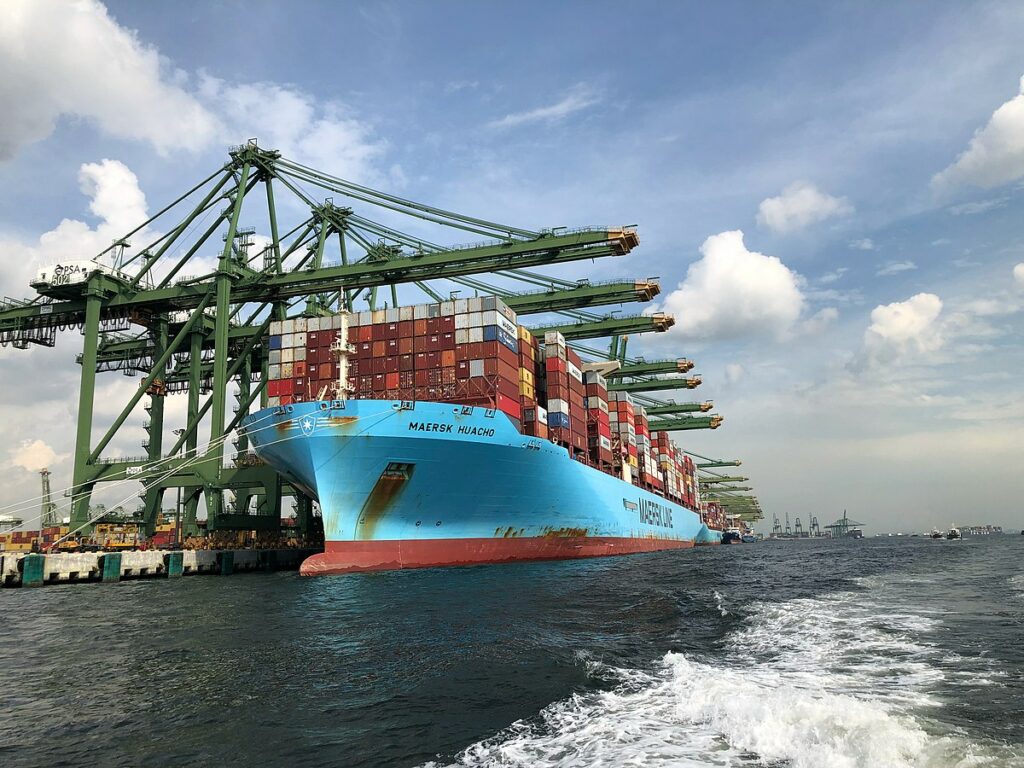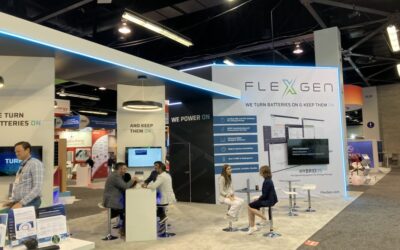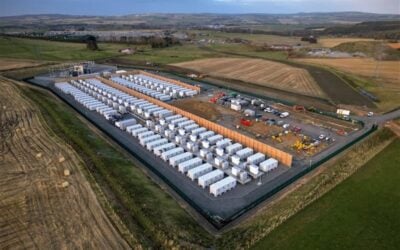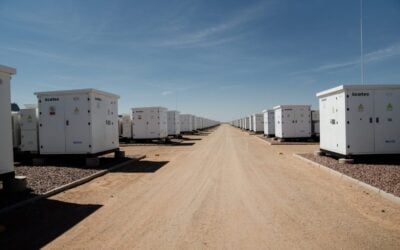
A large-scale battery system has been installed in Singapore as part of a project to increase energy efficiency at and reduce emissions from the country’s seaports.
The 2MW/2MWh battery energy storage system (BESS) has been deployed at Pasir Panjang Terminal, which is one of four major facilities operated by PSA Singapore. The BESS is scheduled to go into full operation in the third quarter of this year.
Enjoy 12 months of exclusive analysis
- Regular insight and analysis of the industry’s biggest developments
- In-depth interviews with the industry’s leading figures
- Annual digital subscription to the PV Tech Power journal
- Discounts on Solar Media’s portfolio of events, in-person and virtual
Loading up some of the world’s biggest container ships to take goods around the world, managing energy use at ports better is a key priority for the Southeast Asian nation’s government.
The country’s Energy Market Authority (EMA) partnered with PSA Singapore to explore different technologies and solutions to tackle the issue.
Launched in 2019 by the Ministry of Trade and Industry and Ministry of Foreign Affairs senior parliamentary secretary Dr Tan Wu Meng, the pair put out R&D grant calls to evaluate bids that could integrate technologies like renewable energy with energy storage and smart controls for the terminal.
At the same time, the EMA also formed a partnership with fossil fuel company Shell Singapore to nurture local energy startups working in areas including distributed power systems, energy storage and internet of things (IOT).
A consortium led by Singapore-headquartered sustainable infrastructure solutions company Envision Digital was awarded the Pasir Panjang Terminal contract through the S$8 million (US$5.73 million) project. Envision Digital has developed a Smart Grid Management System (SGMS) which includes solar PV along with the BESS, controlled by the company’s own controls platform, EnOS.
EMA said yesterday that the SGMS will be used to manage the flow of electricity at the site, which has greatly fluctuating energy demand based on the use of heavy logistics equipment like cranes. The EnOS software platform will forecast energy demand at the terminal in real-time, using machine learning AI algorithms.
According to the Authority, this will enable both short-term and long-term planning of energy use at the port, simultaneously reducing carbon footprint and energy costs.
Learnings from the project will likely also inform plans for the construction of Singapore’s new Tuas Port, which is targeted for completion in the 2040s and will be the biggest fully automated terminal in the world.
“Electricity demand will grow in the next decade with increasing electrification,” EMA industry development director Jeanette Lim said.
“The adoption of innovative demand-side technologies such as smart energy management systems and energy storage systems will help us optimise our energy supply and power grid capabilities.”
The BESS will help buffer the site’s energy systems from spikes in demand, in much the same way that stationary batteries at electric vehicle (EV) charge stations increase the availability of power for multiple users charging their cars quickly while protecting the grid from impacts of demand spikes.
It will also be a multi-application BESS, participating in the National Electricity Market of Singapore at times when it isn’t managing local demand for Pasir Panjang Terminal. Through providing ancillary services, it will generate revenues and support the local grid further.
The project could also serve as validation for commercial and industrial (C&I) battery storage and its capabilities to help businesses reduce their use of electricity at peak times – thus saving electricity costs – and also deliver ancillary services to the market.
Energy storage is key to Singapore’s sustainable economic growth agenda
EMA has targeted the installation of at least 200MW of energy storage systems (ESS) by 2025, to which the project will count as contribution. Singapore’s first large-scale BESS, a 2.4MW/2.4MWh system was supplied and installed by Wärtsilä in October 2020 and participates in the wholesale market as well as reducing peak demand at a substation.
The Authority has in place a programme called Accelerating Energy Storage for Singapore (ACCESS) through which along with initiatives like the smart ports projects it launched an expression of interest (EOI) to build, own and operate 200MW/200MWh of BESS in the country in May.
A contract was awarded through the EOI to Singapore engineering services group Sembcorp for that project. As reported by Energy-Storage.news in June, Sembcorp is deploying the systems on Jurong Island, which is home to much of Singapore’s industrial activity and is being reinvented as an energy and chemicals industry hub for the future.
Through the national Singapore Green Plan 2030, launched in early 2021, the country sees solar energy as key to its sustainable development and for meeting commitments under the Paris Agreement on climate and UN Sustainable Development Agenda. The government and EMA have identified energy storage as a key enabler to this push.






